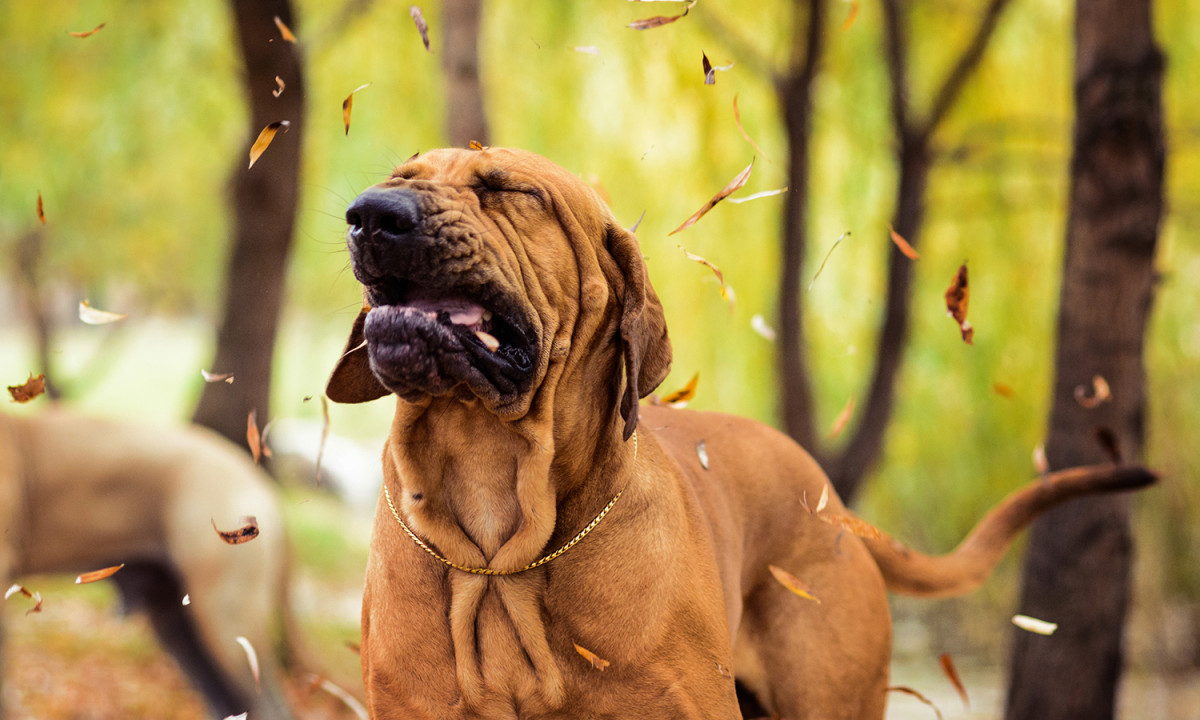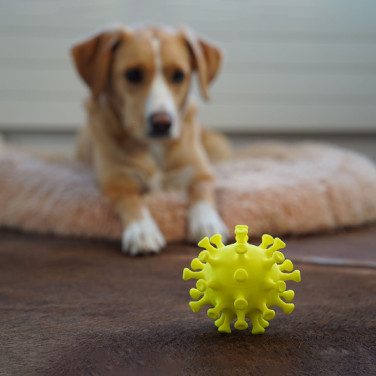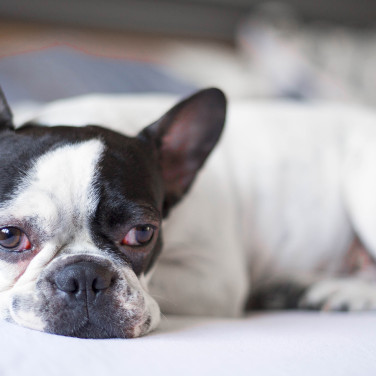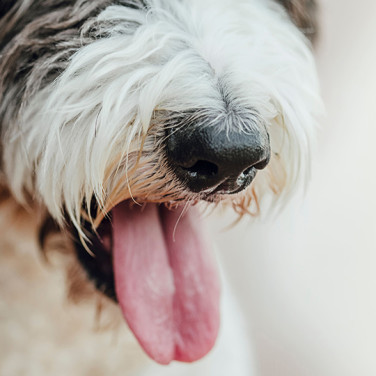SYMPTOMS
Sneezing in Dogs – Causes and Treatments
페이지 정보
본문
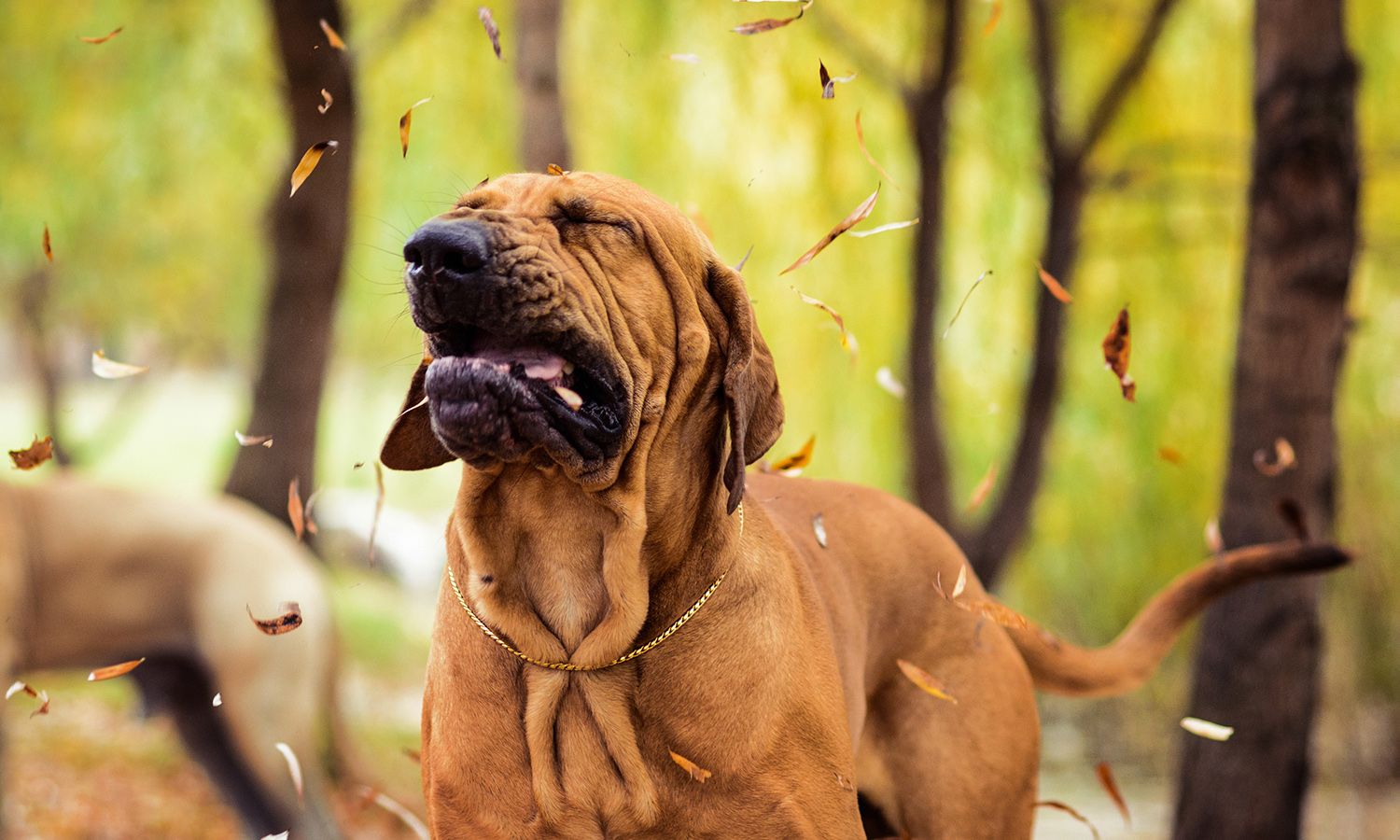
Overview
Sneezing is a natural symptom that can occur for many reasons ranging in severity. Sneezing in dogs can be caused temporarily due to benign and straightforward factors such as excitement, dust, play, seasonal allergies, etc. If a dog sneezes for a few minutes or consistently for several days, it may indicate an underlying issue worth investigating. A few examples of underlying issues that can cause sneezing in dogs include allergies, infection, disease, and nasal tumors, requiring a vet visit for treatment.
Why is my Dog Sneezing?
A dog's sneezing can be normal if it's a one-time thing, but if it's persistent, it could indicate a serious condition. Since dogs usually sniff through their noses, they are more exposed to dust and foreign substances, and various causes can cause sneezing.
The list below is some of the most common causes for sneezing:
-
Play sneezing
Play sneezing is a one-time sneeze a dog may exert while playing with its guardian. Play sneezing typically happens when the dog is aroused, get someone’s attention, or communicates something with its guardian. This type of sneezing is not due to some conditions and should be considered normal behavior, indicating a sign of happiness under playing conditions.
-
Attract attention
They may sneeze to get their caregiver's attention, and these sneezes are simply one-time occurrences and do not sneeze continuously.
-
Communication
Dogs communicate with humans and other animals through sneezing. Sneezes can be used as a calming signal to express 'please slow down a little' or 'I need a break.'
-
Food allergy
Although it is not common, dogs with food allergies can begin to sneeze due to an inflammatory reaction. If you notice a dog’s sneezing worsening within hours of its last meal, it can be safe to assume a food allergy is present. In this case, a consultation with a veterinarian is recommended to determine what the allergy may be.
-
Seasonal allergy
Suppose you have noticed that your dog’s sneezing occurs in a pattern throughout the year. Your dog may simply have seasonal allergies that may persist for a short period. Seasonal allergies commonly cause sneezing in dogs due to pollen, dust, and dandruff.
-
Nasal infection
Nasal infections can cause a great deal of irritation to a dog’s nose, which causes persistent sneezing. Bacterial, fungal, or viral infections can develop in the upper respiratory tract, and, in rare cases, a nasal infection can be caused by an infected tooth root. Infections commonly associated with symptoms such as sneezing include rhinitis and sinusitis.
-
Nasal mites
Nasal mites are tiny bugs that can live inside a dog’s nose and cause persistent sneezing. Nasal mites can be indicated by constant sneezing and bloody discharge from the nose.
-
Nasal tumor
Nasal tumors are more common in older dogs and typically more dangerous in long-nosed breeds. It can make breathing difficult and cause bleeding on one side of the nose. Although it is uncommon, nasal tumors can cause a dog to sneeze and sneeze more frequently over time.
-
Foreign matter
Dogs have 220 million smell receptors in their nostrils, which they use to sense their surroundings by smelling with their noses. That is why dogs often walk with their noses close to the ground, making them more susceptible to foreign matter entering their nostrils.
-
Dental conditions
Problems in the mouth, such as a tumor or infection in the mouth, can cause inflammation in a dog’s sinuses and cause sneezing.
-
Reverse sneezing
Reverse sneezing is when a dog sneezes while breathing in. The sound this type of sneezing makes can be described as choking.
-
Brachycephalic Airway Obstruction Syndrome (BAOS)
Breeds with flat faces, such as Pekingese, French Bulldogs, Pugs, and Boxers, are prone to sneezing. This symptom is due to their narrow airways; they typically have more trouble breathing, snoring, and wheezing behavior.
Symptoms That May Accompany Sneezing
Sneezing is a natural phenomenon, but if it lasts for a long time or is accompanied by other clinical symptoms, you should visit a veterinary hospital for a checkup.
You may also notice the following symptoms depending on the cause:
- Tears
- Nasal discharge
- Nose Bleeding
- Fever
When is Sneezing a Problem in my Dog?
Sneezing is not typically a symptom that indicates a medical emergency or serious medical condition. However, if a dog frequently sneezes, sneezing intensifies, or is accompanied by other symptoms such as bloody discharge, difficulty breathing, wheezing, etc. These situations do indicate an underlying issue that a veterinarian should check to determine the cause and provide appropriate treatment.
When should I take my dog to the vet for sneezing?
- Frequent sneezing with no apparent reason for sneezing to occur
- Sneezing due to allergies, while not life-threatening, should also be considered to improve quality of life. As well as severe allergy symptoms such as excessive itching, swelling, redness, etc.
- If there is any bloody or thick nasal discharge present while sneezing
- Accompanied by symptoms such as lethargy, fever, loss of appetite, facial swelling, etc.
- If you hear wheezing or breathing difficulty
Home Treatment for my Dog Sneezing?
Give a dog plenty of rest and remove irritants such as dust, smoke, and foreign substances that can irritate their respiratory system. Sometimes, accessories and neck collars irritate the throat, causing sneezing symptoms. Increase humidity with a humidifier where the dog rests and typically habitats. Gently massaging the neck or lightly blowing on a dog’s face can help calm a dog from having a reverse sneezing episode. You may also flush a dog’s nasal passages with saline drops to clear obstructions, irritants, and allergens stuck there. If sneezing persists or worsens, it is best to have the root of the problem diagnosed and treated by a veterinarian.
What to Expect When Diagnosing Your Dog’s Sneezing
Come prepared with information about your dog’s symptoms when visiting the vet to diagnose persistent sneezing.
Your veterinarian may ask the following questions to diagnose your pet’s cause of sneezing.
- How many days has the sneezing persisted, and how frequently a day?
- Does sneezing only occur in certain seasons?
- Has the environment changed recently?
- Was there a change in diet/snack?
- Has your dog primarily been raised inside or outdoors? (ex. In the yard)
- Does your dog have other symptoms besides sneezing, such as nasal discharge, coughing, and wheezing?
- Does your dog have any trouble eating, or is there a bad smell in its mouth?
These questions can help your veterinarian narrow down the cause and choose appropriate tests to determine the cause.
The veterinarian may conduct any of the following tests:
-
Basic physical examination
A general physical examination is essential to detect abnormalities before further tests.
-
Chest X-ray
A radiograph can help check whether the airways are not narrowed and if there are any problems in the respiratory system.
-
Blood test
Blood tests are conducted to check the number of blood cells directly related to an inflammatory reaction.
-
CT scan
Nasal tumors are one of the causes of persistent sneezing. If sneezing and bloody discharge are present, a veterinarian will suggest a CT scan to confirm the presence of a tumor.
-
Rhinoscopy
Nasal endoscopy is a method of examining the nasal cavity and if any abnormality is found. A sample can be taken and sent for biopsy.
Treatment for Persistent Sneezing in Dogs
According to the complete diagnosis, a veterinarian will prescribe appropriate treatment for your dog’s persistent sneezing.
-
Diet
If the sneezing is due to a food allergy, a veterinarian may prescribe a diet to rule out the allergen and adjust the dog to a new diet.
-
Medication
Antihistamines or antibiotics may be prescribed for an upper respiratory infection or allergy if an environmental allergen is suspected.
-
Rhinoscopy
Rhinoscopy will help detect if there is any foreign body causing sneezing in the nasal cavity.
-
Antihistamines
Some sneezing due to an allergic reaction may be prescribed an antihistamine.
-
Antibiotics
Antibiotics can be prescribed to treat persistent sneezing due to infection.
-
Chemotherapy
If a nasal tumor is detected, chemotherapy may be prescribed to prevent the tumor from growing and spreading.
-
Radiation therapy
Similarly, a veterinarian may also prescribe radiation therapy in the presence of a nasal tumor.
How to Prevent my Dog from Sneezing?
If you feed your dog figs, it's impoSneezing is a normal physiological response to certain stimuli that are impossible to prevent entirely. The best preventive step is to ensure all vaccinations are kept up to date and keep a close eye on what your dog is sniffing on walks. To minimize the chance of irritating your dog’s nose at home, keep the dog’s environment clean of dust by vacuuming, and avoid using aerosols where your dog inhabits. Since infection can cause sneezing, if you have other pets, it's a good idea to isolate them to prevent transmission. Sneezing in dogs is not always indicative of a severe medical condition. Suppose sneezing persists or is accompanied by other symptoms, such as bloody discharge or wheezing, a visit to the vet for treatment as soon as possible is recommended.rtant to choose ripe figs. Since the stems and skins of figs contain toxic substances, they should be completely removed and only the fleshy part should be fed.
Check Sneezing Symptoms with the Buddydoc Symptom
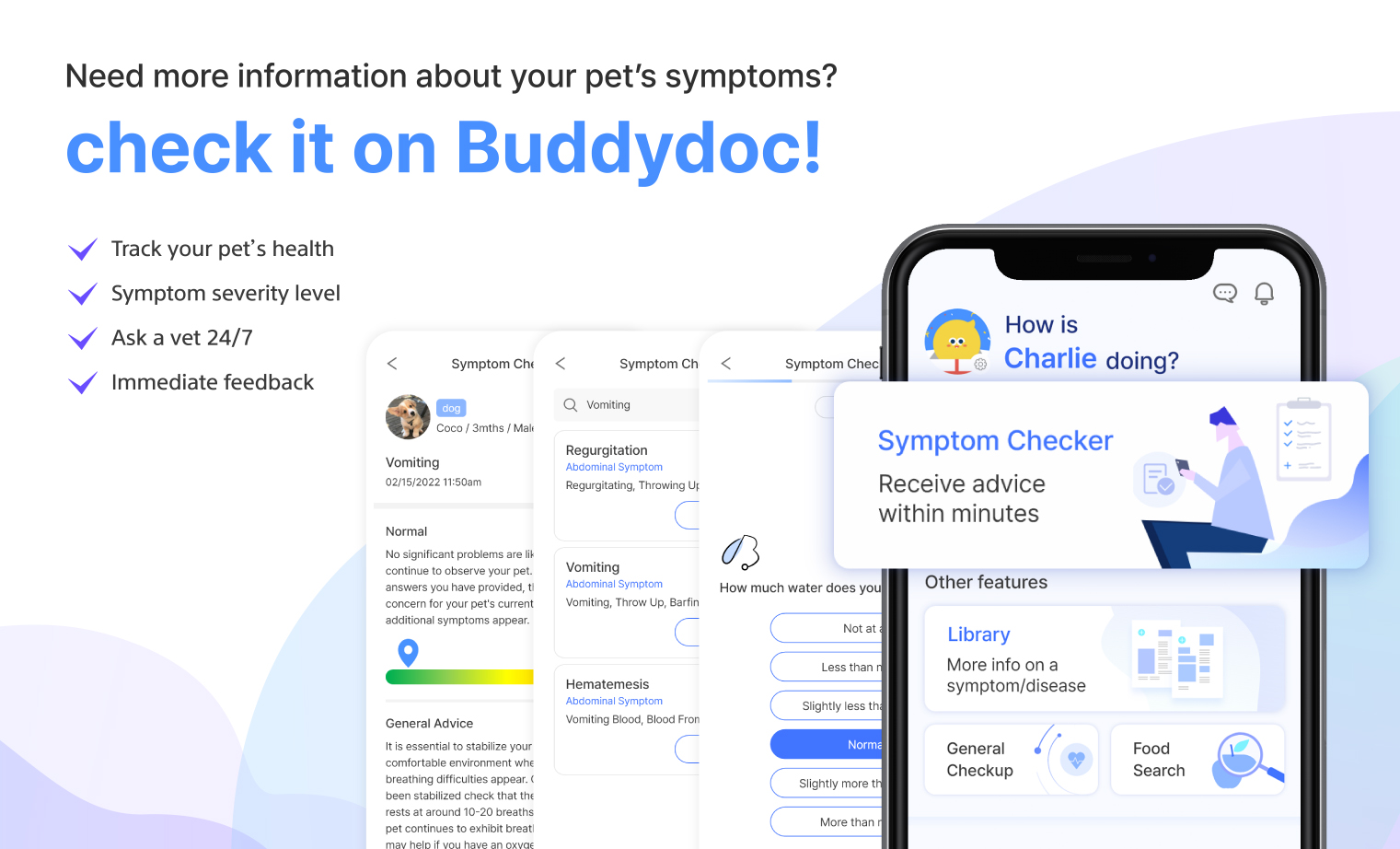
If it is difficult to accurately determine the severity of the symptom, you can use the Buddydoc symptom checker to help you! The self-symptom checker service will ask questions about your pet’s symptoms and can take anywhere from 2-5 minutes to receive a pet triage result. Each answer you provide has a triage value and is calculated in the end result page to help you make a better decision for your pet’s health. The result page provides a level of risk to your pet’s health, veterinarian advice, possible diagnoses, and recommended examinations when visiting the hospital.



